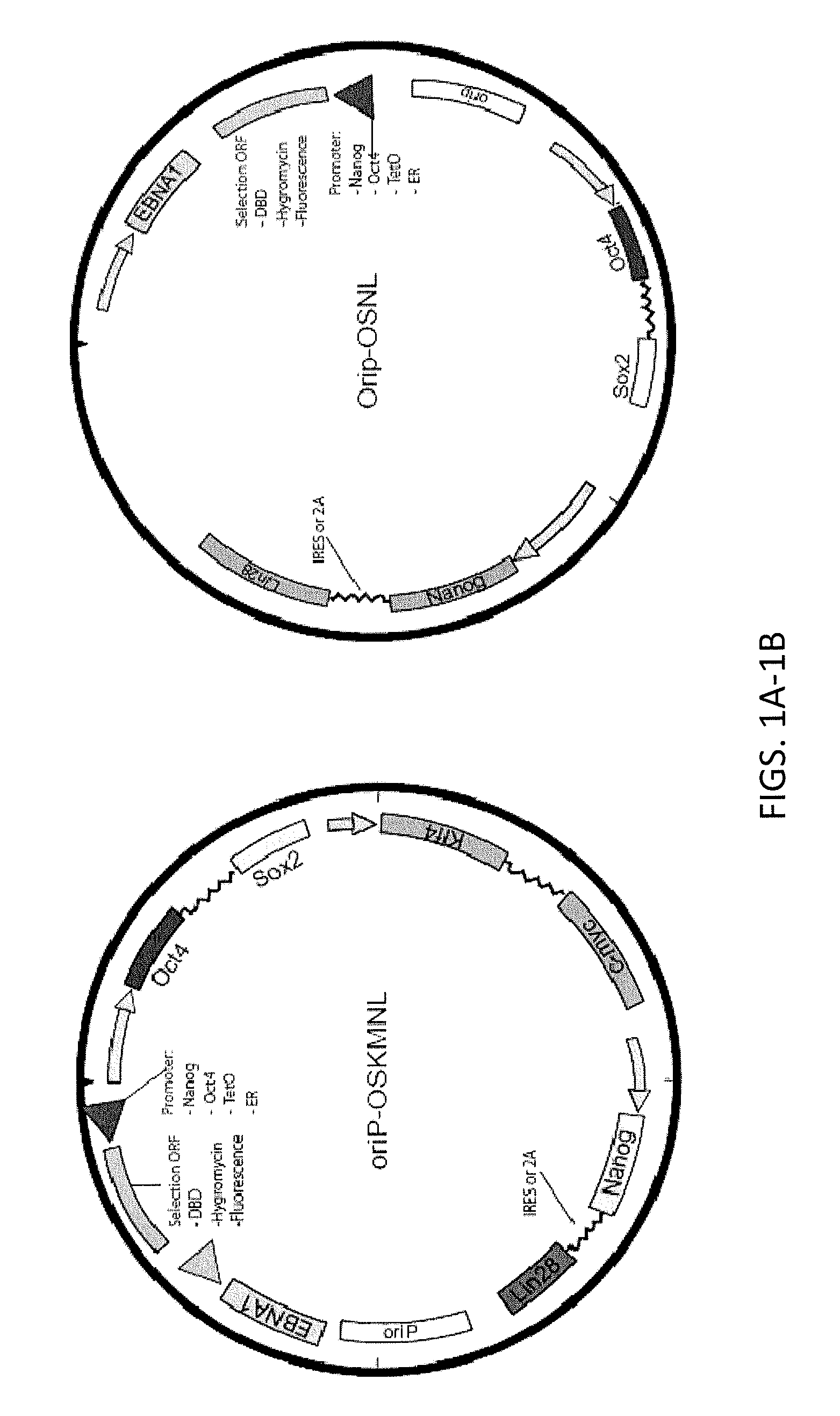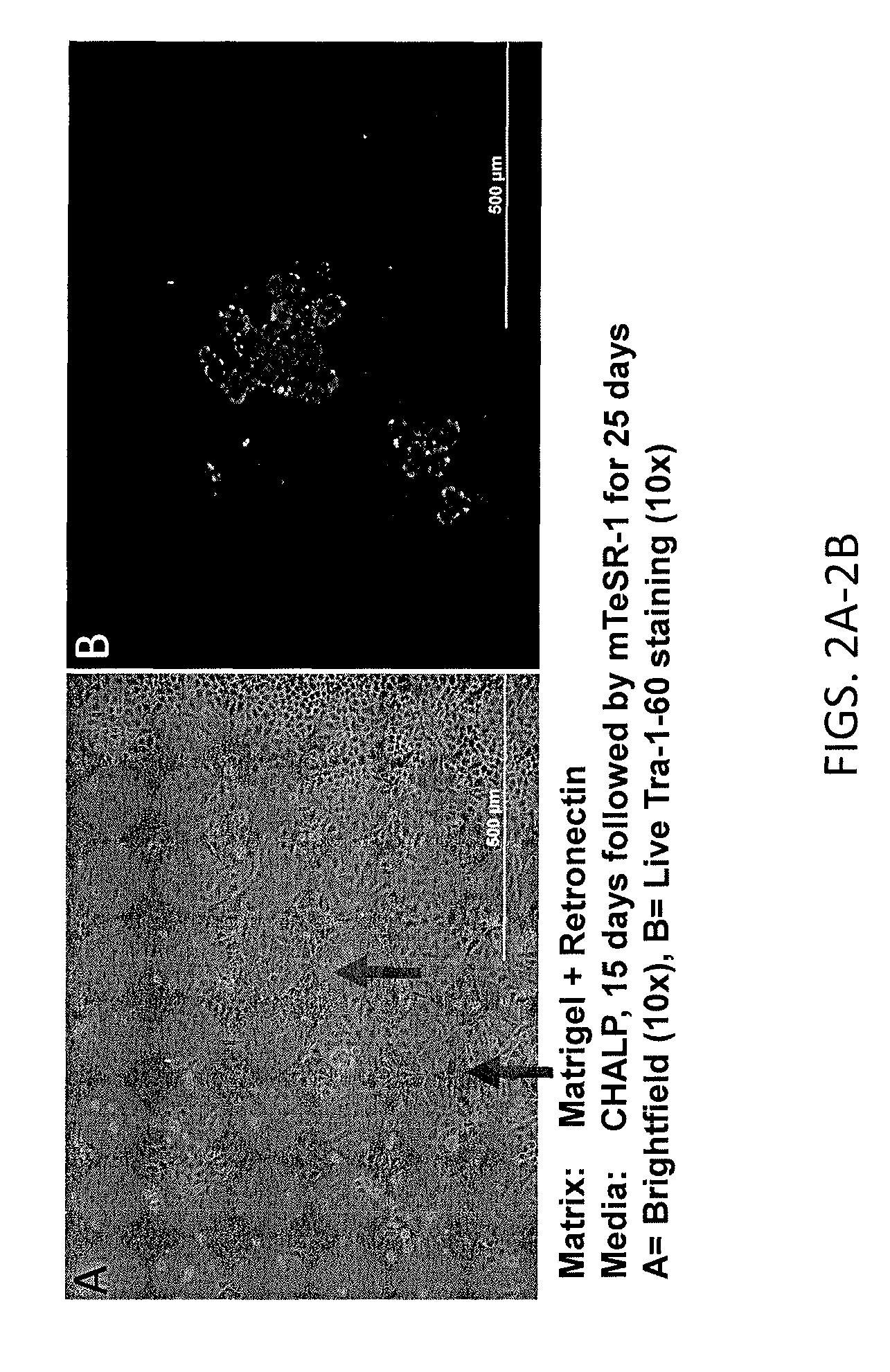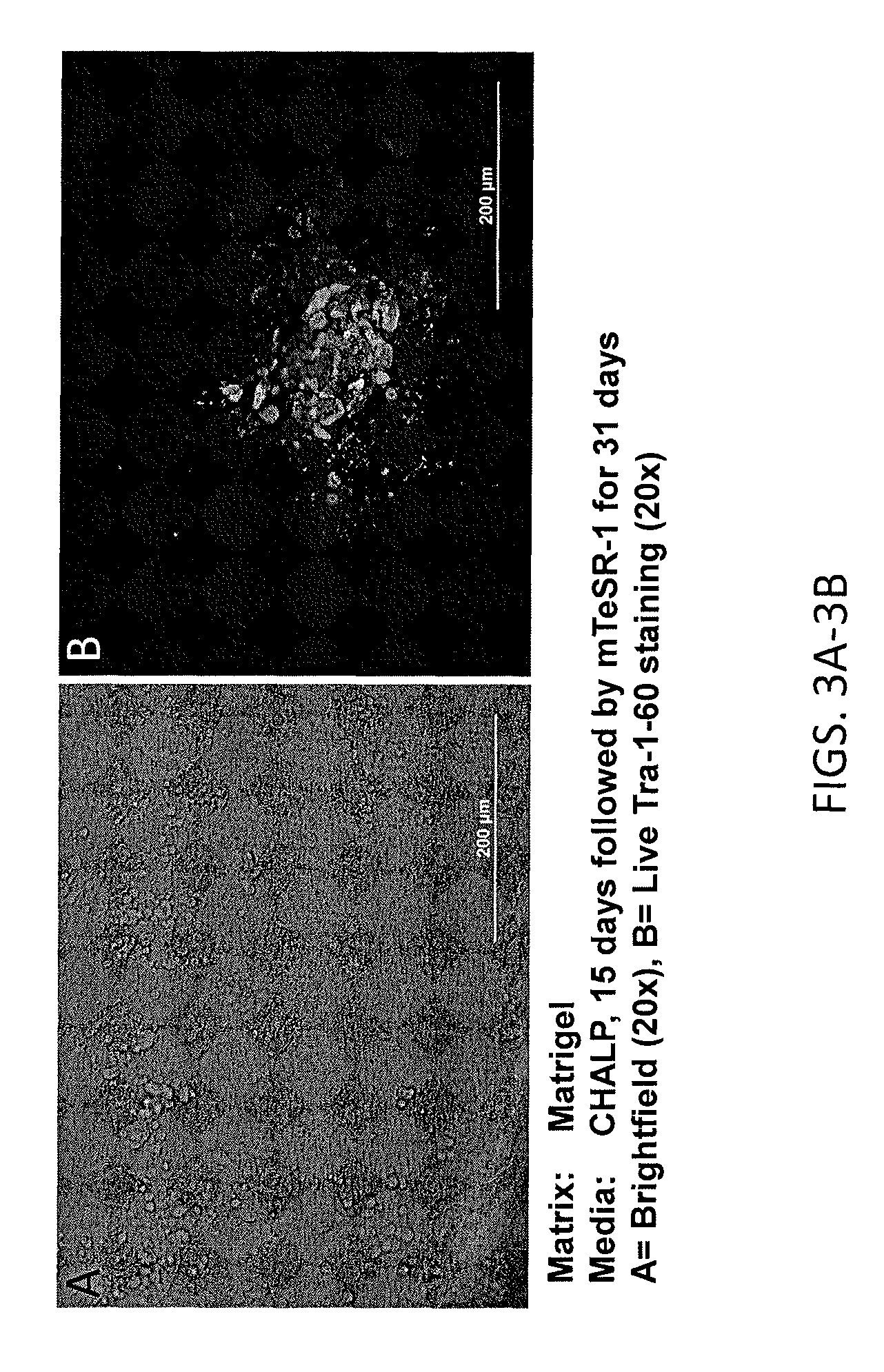Reprogramming immortalized B-cells to induced pluripotent stem cells
a technology of induced pluripotent stem cells and immortalized b cells, which is applied in the field of molecular biology and stem cells, can solve the problems of cumbersome sources for generating patient-specific stem cells and inconvenient previous methods for reprogramming human somatic cells, and achieve the effect of increasing the reprogramming efficiency
- Summary
- Abstract
- Description
- Claims
- Application Information
AI Technical Summary
Benefits of technology
Problems solved by technology
Method used
Image
Examples
example 1
Engineering Maxi EBV Particles for Reprogramming
[0299]If EBV-positive B cells prove more receptive to reprogramming, then B cells negative for EBV may be made more susceptible by infecting them with engineered EBV particles that may encode reprogramming factors. EBV is a member of the human herpesvirus family that is capable of packaging very large amounts of DNA (≦165 kb), a desirable feature from the standpoint of molecular engineering. We can take advantage of the features of EBV to generate recombinant EBV-based vectors that, in combination with a helper cell line, can be used to create Maxi-EBV particles that serve as vehicles for delivering proteins essential for reprogramming, transformation, etc. (Wendtner et al., 2003; Delecluse et al., 1999; Delecluse et al., 1998; Hettich et al., 2006). The following is an outline of the process that may be needed to derive such particles:
[0300]First, to generate an infection B cell line, a virus-defective helper cell line is created from...
example 2
Reprogramming Lymphoblastoid Cells Lines (LCLs) and Standard B Cells
1) Drive Mature B Cell Population Towards a Progenitor State or Isolate a Pax-5-Pro-B Cell Progenitor Cell Type for Reprogramming Trials.
[0301]Dedifferentiation of a mature B cell population to a progenitor cell type might need inhibition of Pax-5, Blimp1, Oct2 and Bob-1 or up-regulation of C / EBPα.
[0302]The following reagents / treatments are used to down regulate Pax-5 expression:
[0303]Cells are treated with Glucocorticoids (GCs) like Prednisolone sodium succinate or SN38 or SU11274 (Kanteti et al., 2009; Marie-Cardine et al., 2008) to down regulate Pax-5 expression (Rahman et al., 2001). The surviving cells are placed in IL-7 containing media to support the growth of pro-B cells.
[0304]B cells are treated with antisense RNA, small interfering RNA, ribozymes or transfected with expression cassettes encoding Pax-5-inhibiting oligonucleotide molecules. The same approach can be used for Blimp1, Oct2 and Bob-1. Down regul...
example 3
Reprogramming Lymphoblastoid Cell Lines (LCLs) without Preemptive Inhibition of Pax-5 or Over-Expression of C / EBPα-R Gene Using Defined Feeder-Free Conditions
[0319]The primary LCLs were obtained and expanded in RPMI medium containing 10-20% FBS. The cultured LCLs were transfected via electroporation with EBV-based episomal vectors containing reprogramming factors as described below.
[0320]The reprogramming was performed using three LCL cell lines transduced with three sets of reprogramming factors: 7 reprogramming factors (Oct4, Sox2; Nanog, Lin28, Klf4, c-Myc, SV40 Large T antigen), 5 reprogramming factors (Oct4, Sox2; Nanog, Lin28 and SV40 Large T antigen) or 4 reprogramming factors (Oct4, Sox2; Nanog and SV40 Large T antigen).
[0321]The optimal concentration of DNA for reprogramming was between 1-2 μg. The efficiency of transfection was estimated by using a relevant plasmid backbone containing a fluorescent marker like GFP.
[0322]The efficiency of transfection for GFP-containing pla...
PUM
| Property | Measurement | Unit |
|---|---|---|
| volume | aaaaa | aaaaa |
| volume | aaaaa | aaaaa |
| volume | aaaaa | aaaaa |
Abstract
Description
Claims
Application Information
 Login to View More
Login to View More - R&D
- Intellectual Property
- Life Sciences
- Materials
- Tech Scout
- Unparalleled Data Quality
- Higher Quality Content
- 60% Fewer Hallucinations
Browse by: Latest US Patents, China's latest patents, Technical Efficacy Thesaurus, Application Domain, Technology Topic, Popular Technical Reports.
© 2025 PatSnap. All rights reserved.Legal|Privacy policy|Modern Slavery Act Transparency Statement|Sitemap|About US| Contact US: help@patsnap.com



